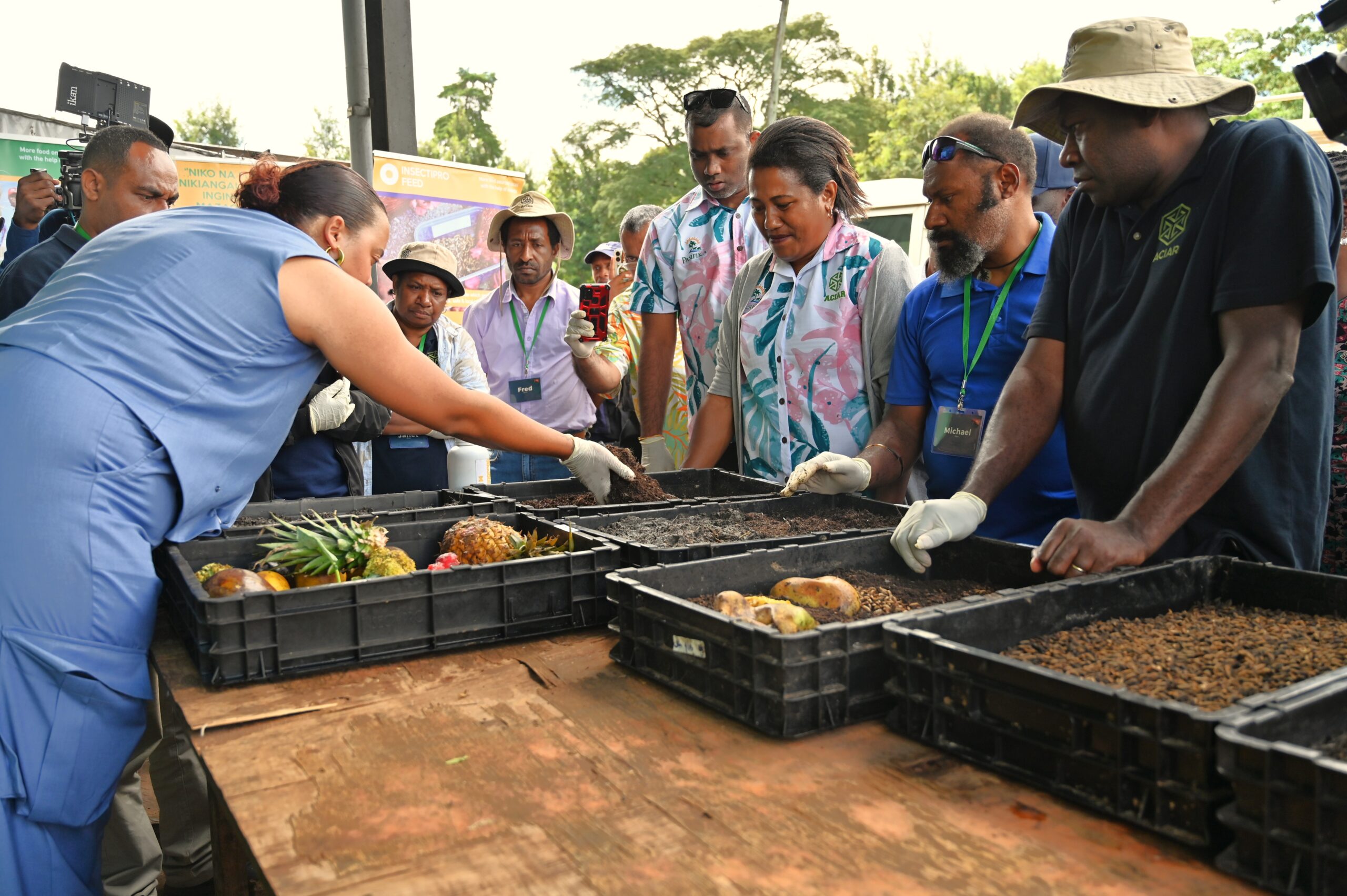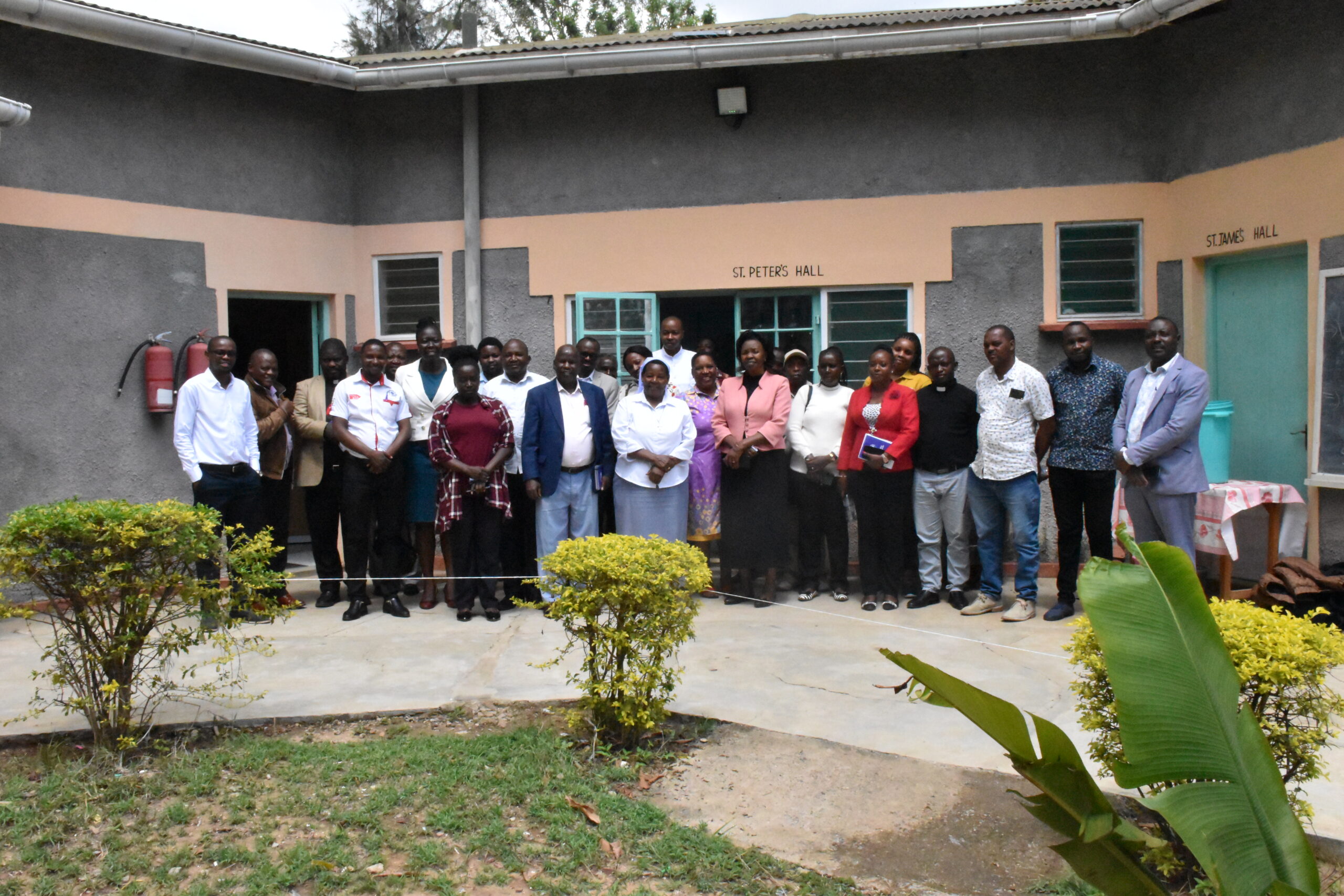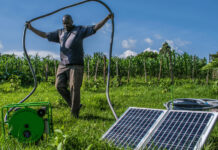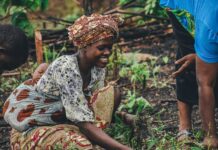By Lenah Bosibori
Nairobi, Kenya: For decades, waste management has been a problem in Dandora dumpsite, the largest landfill in Nairobi, the Kenyan capital which has been described as full to capacity.
In a bid to look for ways to manage the waste, farmers are leveraging on Black Soldier Fly (BSF) farming which has proved to strengthen food security and mitigate climate change in Africa, the continent that has borne the brunt of planetary warming.
Led by the International Centre of Insect Physiology and Ecology (icipe) courtesy of funding from the Australian Centre for International Agricultural Research (ACIAR), the BSF farming initiative is turning around the fortunes of farmers and the health of the broader community in Eastern Africa by creating jobs and wealth from waste.
During a recent visit to InsectiPro, located on the outskirts of Nairobi along the serene Limuru road, I met Talash Huijbers, the CEO.
As a beneficiary of the project dubbed ‘Upscaling the benefits of insect-based animal feed technologies for sustainable agricultural intensification in Africa (PROTeinAfrica) | ACIAR’, Huijbers has been farming BSF for over five years.
She says that BSF farming is a small, easy, and cool type of farming that involves flies that can eat waste and convert it to high-value protein that can replace fish oil, soy, and animal feed. Their poop is also very good for fertilizer, according to the younger farmer.
She says that she ventured into BSF farming because growing all other types of crops like maize, beans, soya beans, coffee, and many more require farm inputs. “I opted for the inputs because we do not have very high-quality farm inputs in this country. I chose to focus on the end of the chain by providing solutions that are good inputs to farmers,” adds Huijbers.

Black Soldier Fly type of farming is the most widespread form of insect farming in the world. The Black Soldier Fly is ideally suited for food production due to its rapid production cycle and high concentration of protein.
Benefits of BSF farming
Huijbers says that the benefits of BSF farming are many and rich in providing solutions to climate emergencies devastating Africa. Through farming in BSF, one gets feed for fish, pigs, chicken and organic fertilizer that is rich in proteins for the farms.
“The benefits of BSF farming is that they help reduce waste and greenhouse gas emissions in areas like Dandora, this is through converting organic waste into high-value protein and fertilizer, in our case we collect waste from Dandora and give it a new life, ” she adds.
According to Huijbers, BSF based feed can improve animal health and productivity and provide a sustainable alternative to traditional feed sources like fish meal and soy.
She adds that farmers should not worry about big farms because of this technology. “This type of farming can be done in a small-scale way because we get a lot of waste from our houses and we can utilize it into animal feeds and get very rich in protein organic fertilizer,” she says.
Challenges facing BSF farming in Kenya
Huijbers adds that despite her farming showing promising results in proteins, it also faces various challenges that have been a hindrance in her progress towards a food-secure continent.
“When we started, regulation was very difficult because this industry didn’t really exist, there were maybe two players in Kenya doing this but not at a large scale. So we kind of had to figure out the regulations step by step,” she adds.
“Regulations on insect farming are still developing making it a challenge while scaling up,” she says. “We are saving on climate; we are reducing waste and toxic gasses coming out of Dandora by giving it a new life, so once the insects have eaten this waste, you have the protein for both the poultry and the crops at the farm,” she adds.

However, Huijbers says that they are still struggling with some regulations like whether the Black Soldier Fly is a domesticated insect or wildlife, but we’re very lucky that we are working closely with the government in this programme.
“They gave us certification for insects and our insect-based feed for poultry and fertilizer. So at least some corners are regulated but not in all. Also, I think another big challenge that we’re facing is the separation of waste,” she affirms.
Black Soldier Flies can only eat organic or green waste, like mango peels, oranges, avocados, and pineapples, but sometimes we get a truck of waste full of a mixture of waste like diapers, and papers that we end up sorting which makes it difficult from our end.
In Kenya sometimes when Zambia closes their border we don’t have enough feed coming into the country, meaning that a lot of feed millers really struggle to make their feed so BSF is a very good replacement for that, according to Huijbers.
“Sometimes we import fish meal that is adulterated with a lot of sand, BSF solves that as well because of the clean local products available year-round,” she adds.
Further, she adds that the other benefit the insects is that they are high in protein and fats, they also boost the animals’ immune system making them a lot healthier than they would be with regular feed; chickens also lay eggs for longer while pigs grow faster making BSF farming phenomenal.
Partnerships with farmers across Kenya
Huijbers says that they are working with over 7,000 farmers across Kenya trialing the venture in different geographical areas to see how it reacts with the soil. “So far we are seeing really good results, farmers’ have recorded an increase in their yield of between 30-50% in staple crops like maize and sorghum but also in cash crops like tea, coffee, and avocado,” she adds.
“We are looking at taking this technology to our neighboring countries, Uganda, Rwanda, and Tanzania, as well as Ghana, wherever there is waste, it’s a good way to feed poultry and eat food that is less harmful from toxic pesticides,” she adds.
BSF farming is a job creation avenue for youths and women
Dr Tanga Chrysantus, a senior scientist and head of insects for food, feed, and other uses program at icipe says that BSF farming brings job opportunities to both the youth and the women.
“BSF creates jobs at all the value chain stages; jobs are created at waste collection, separation, transport and processing of the larvae and production of fertilizer locally that reduces the cost of importation from outside,” adds Chrysantus during an interview.
He further says that insect farming develops multiple products within the value chain that creates a very product-based business portfolio for smallholder farmers and many other actors in the value chain. They later produce organic fertilizer made from waste that can improve soil health and crop production.
He adds that studies have shown that if BSF farming is fully implemented in Kenya, it could save close to 1.3 billion shillings (USD 10 million) in forex savings which can play a big role in revitalizing the country’s economy.
BSF farming is very easy and can be done anywhere not necessarily on a large scale, according to Chrysantus. “These insects have a development cycle of just 12 days, which means it is a quick cash flow for smallholder farmers; you can harvest it 26 times a year, which means each day one gets 10 tons; in addition to this, BSF is not a disease carrier, it is not a nuisance to the environment, it therefore breaks down the waste that is dumped out there,” he adds.
He further adds that if we can develop a technology to harvest insects, including mass swarms of locusts that we have experienced before destroying crops, and sell them to feed industry, we can then help in fighting food insecurity because we will remove all the insects destroying our crops within a few days from our community to be used with feed companies in processing feeds rich in protein.
“Kenya, Uganda, Rwanda and Tanzania have already adopted the standards, we are open to the African Union (AU) through the African Organization of Standardization because we do not have a harmonized standard for the entire continent and the benefit will be to scale and benefit all the member states and also allow national government to invest into insect farming as an opportunity that can benefit the rapidly growing population,” he reiterated.
On her part, Dr Anna Okello, the Research Program Manager for Livestock Systems at ACIAR said that they have been conducting research in Kenya for 10 years to find sustainable ways to manage livestock waste, including using insects as feed for poultry and pigs.
“In any developing country in the world, the issue of livestock feed is the bottleneck for efficient and more sustainable livestock production, with our partners in Kenya, we were trying to find different ways that we could utilize insects particularly the black soldier fly and be able to produce feed for animals as well and the benefits of fertilizer and the waste management,” said Dr Okello.
She further adds that food loss and food waste is a bigger contribution to greenhouse gas emissions adding that BSF farming is not only producing sustainable feed for fish, pigs, and poultry but is also addressing food waste and issues of organic matter converting it into sustainable and useful for livestock.
“Farmers with small portions of land can start this type of farming, you don’t have to have this huge piece of land, anyone can do BSF at any level across the value chain,” she reiterates.













